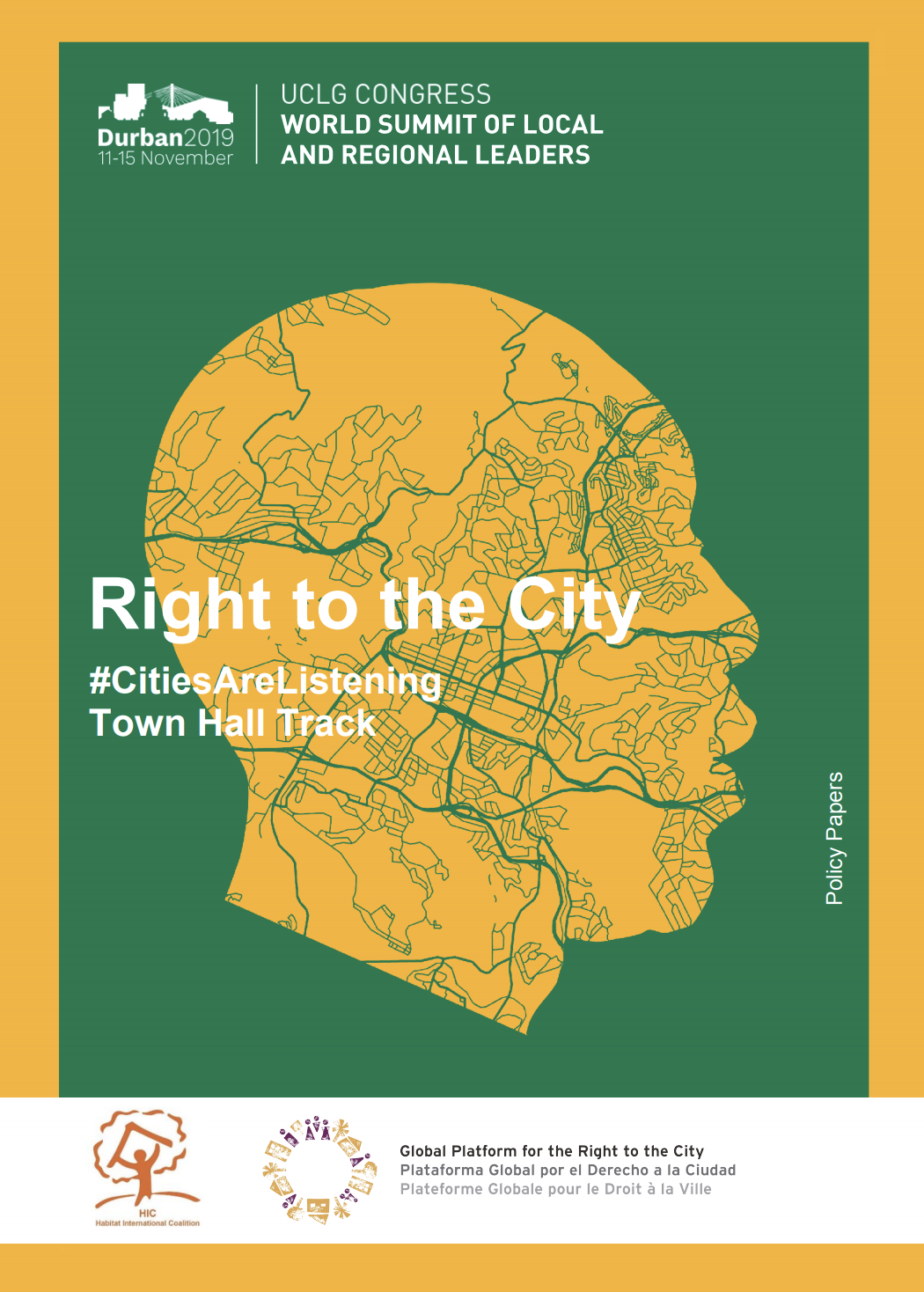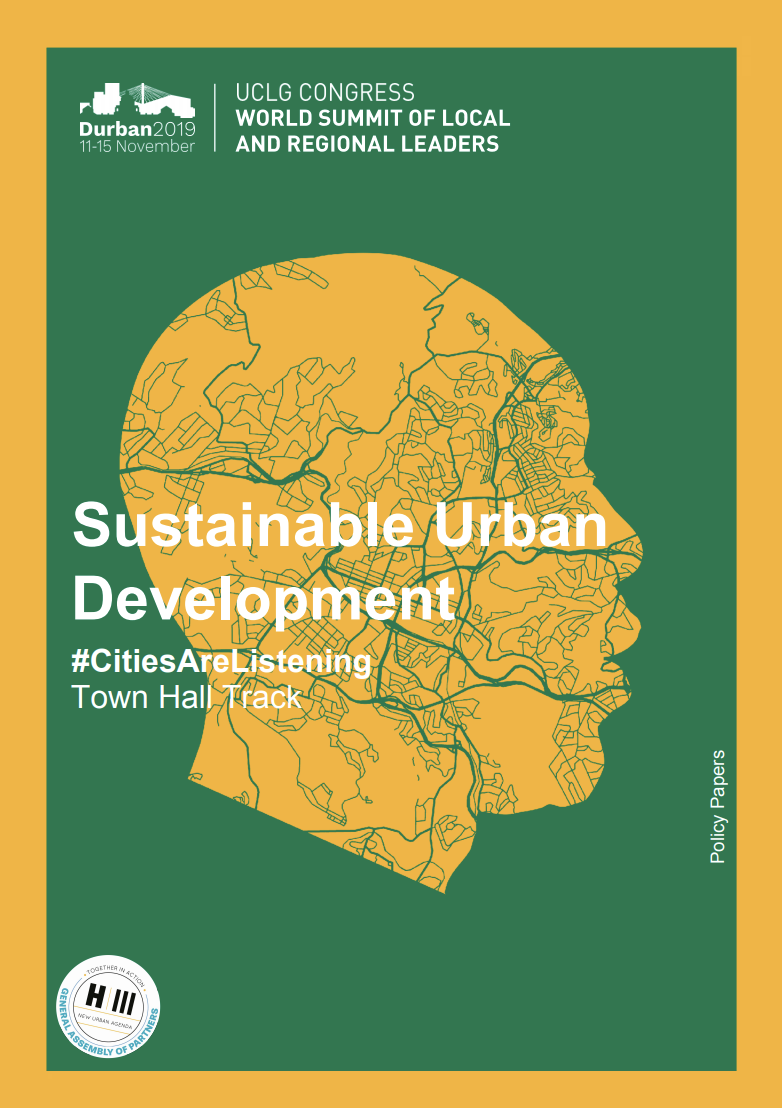The Town Hall, which occurred during the UCLG World Summit in Durban (Nov. 2019), was a space dedicated to dialogue and interaction between different internationally organized civil society constituencies and the political leadership of the local and regional governments constituency to jointly define our global policies.
Driven by civil society, it allowed these stakeholders to collaborate in the world that we, the local and regional governments constituency, are building to achieve the ambitious goals that we set out for ourselves. Structured around 5 sessions, the track revolved around policy papers drafted by our partners on a variety of themes: Accessible Cities; Addressing Informalities; Gender Equality; Right to the City, and Sustainable Urban Development.

The policy recommendations elaborated for local governments are a sign of the transformation of our movement to include all stakeholders in the decision-making process and to showcase how cities are listening to achieve the global goals.
Co-creating policy priorities
-
Inclusive Cities, led by World Enabled
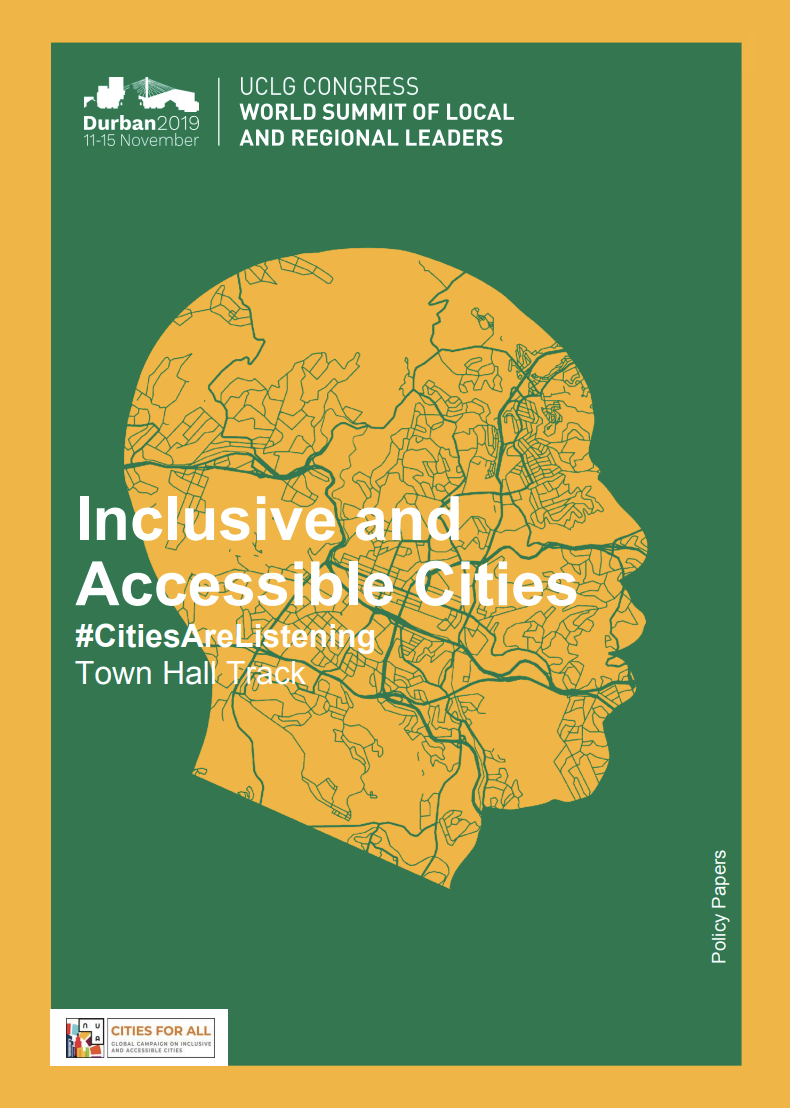
The paper develops recommendations on how to enable city dwellers to develop their full potential in cities, by implementing accessibility as a human right – a precondition to independent living and equal participation. Recommendations focus on Universal Design building on the 6 pillars of the Global Compact on Inclusive and Accessible Cities: non-discrimination, accessibility, participation, inclusive urban policies, capacity-building, and data. The paper stresses the relevance of participatory planning processes to make policies and investments right from the start. It concludes by recommending to the World Organization the establishment of a Community of Practice on Accessible Cities to foster peer-learning on universal design policies. Find an easy read version here and an audio version here.
-
Addressing Informalities, led by Cities Alliance, in collaboration with Slum Dwellers International and Women in Informal Employment: Globalizing and Organizing
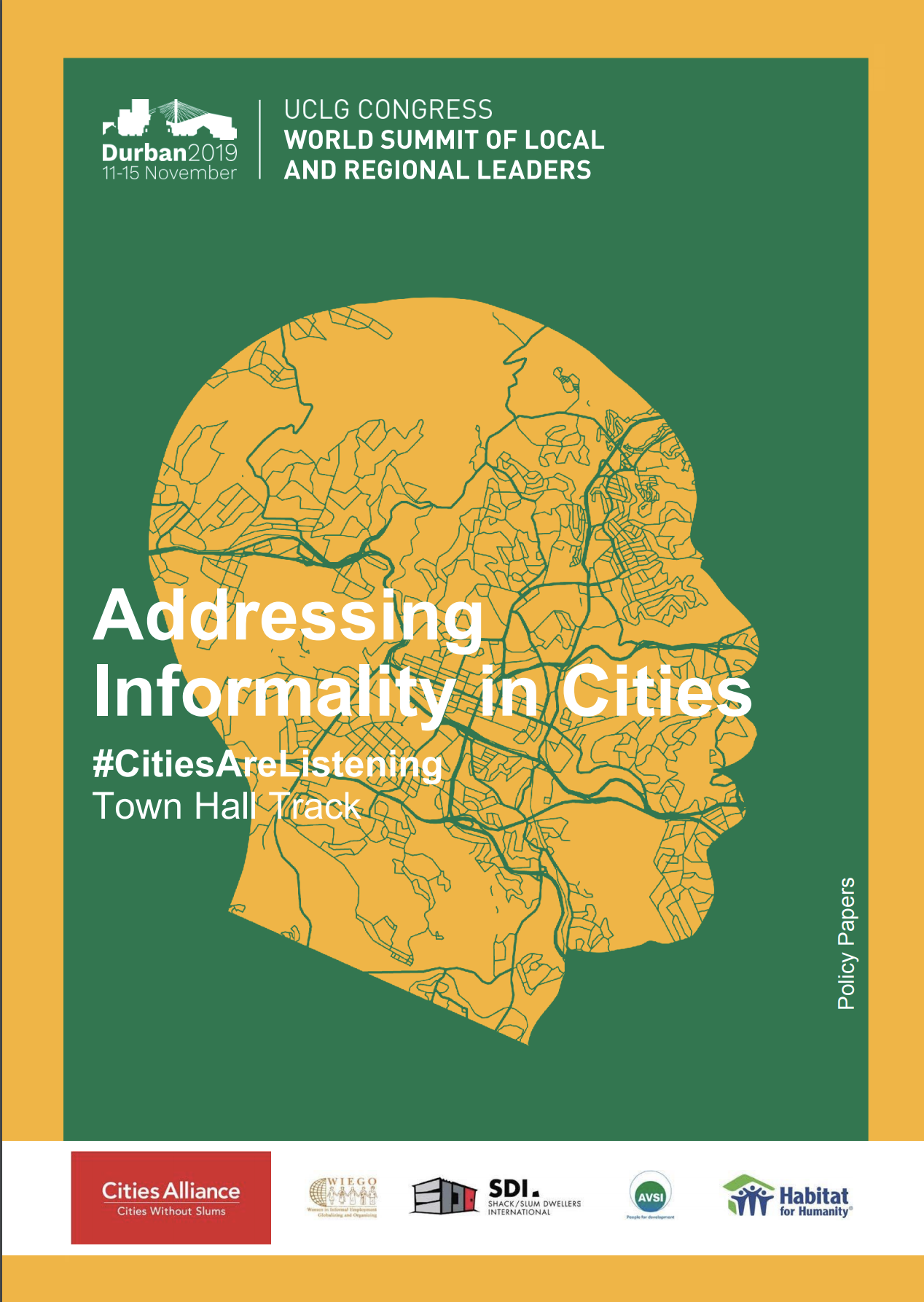
The Addressing Informalities co-creation addressed the twin faces to informalities: informal settlements; and the informal economy; that are deeply intertwined and that must be addressed to improve the lives of the urban poor. Only through a rights-based approach and the fostering of national enabling environments will the urban poor be able to live adequate lives and move away from the informal economy.
-
Gender Equality, led by the Huairou Commission
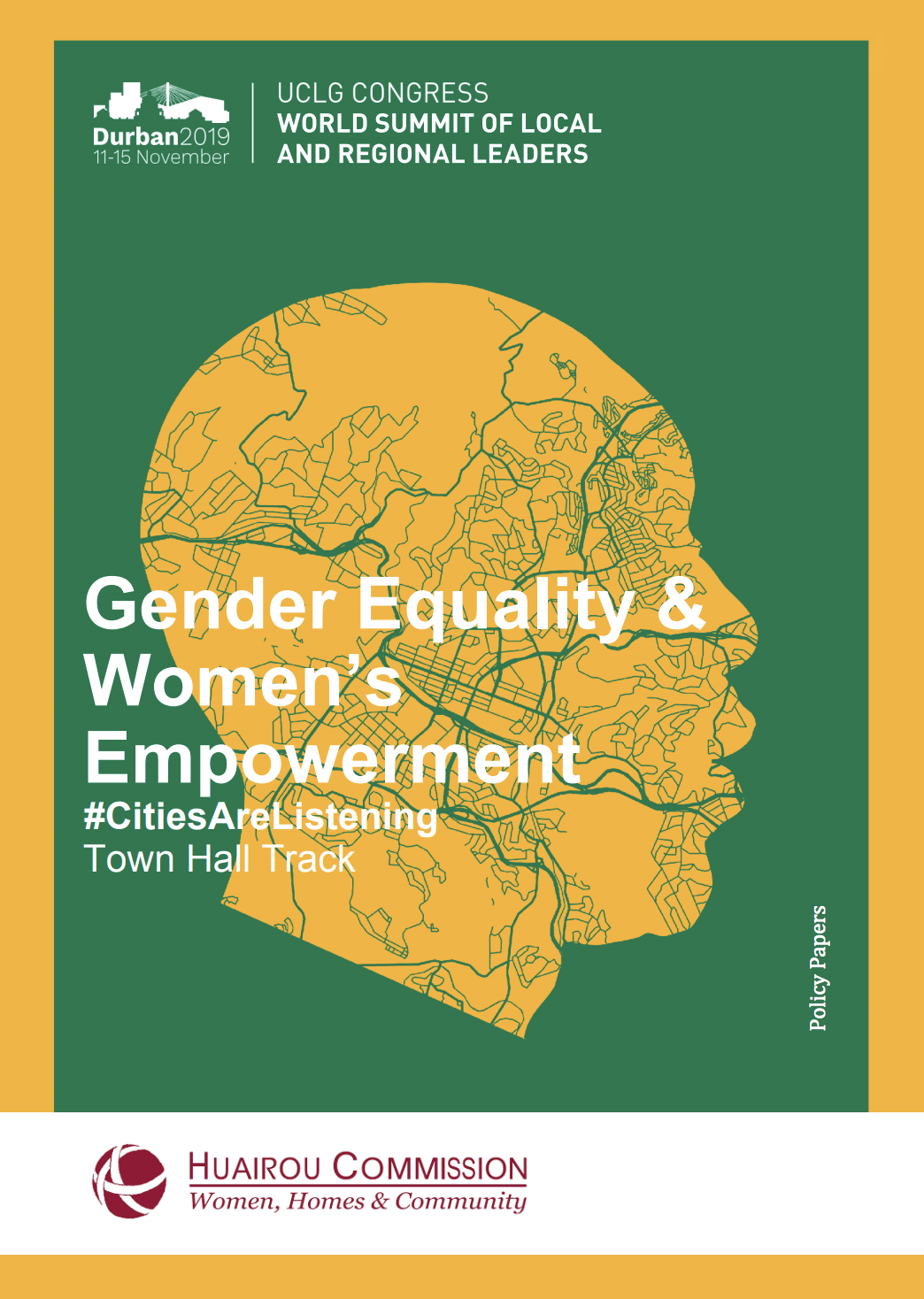
Gender equality and women’s empowerment are fundamental to producing and nurturing just and prosperous communities, and are enablers of efficient and accountable local governance. The paper identifies obstacles to gender equality that local governments can address. It recommends setting up mechanisms such as participatory audits of existing policies through a gender-based approach, and to focus on key policy areas like safety, decentralization, procurement, decision-making processes, basic services, and housing.
The paper showcased how is essential to view human settlements through a rights-based lens. It focuses on 6 themes: financialisation of cities and housing; rural-urban divide; territorial and social inequalities; democratic backsliding and human rights curtailment; migratory movements, and resilience. The document further links these axes to the content of global agendas (NUA, 2030 Agenda), and defines a set of conditions for local governments to serve as enablers for the realization of the right to the city – related to citizenship, governance, the role of private sector, and capacity-building.
Focused on the nature of partnerships needed for sustainable urban development, particularly addressing the engagement with local and regional governments, the role of data, technical support for policy, and the crucial importance of financing for sustainable urbanization. Within this context, the presence of national enabling and the formation of multi-stakeholder partnerships is identified as fundamental to spur action and dialogue











